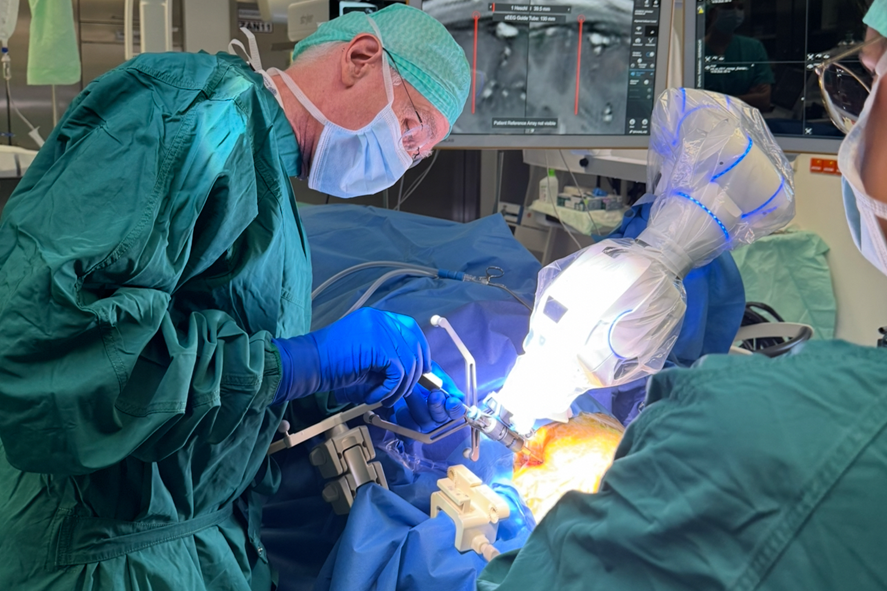
(Vienna, 25 September 2025) The Department of Neurosurgery at University Hospital Vienna and MedUni Vienna has performed its first robot-assisted implantation of deep electrodes for invasive epilepsy diagnosis. The highly precise Cirq® System robot platform, which supports neurosurgical procedures, was used for this purpose.
Stereotactic deep electrode implantation is a key step in the diagnosis of treatment-resistant epilepsy. It enables the electrical activity of the brain to be measured directly and the epileptogenic zones to be localised with millimetre precision. Until now, these procedures have been performed exclusively by hand. The use of the Cirq® system now allows for significantly greater precision and stability in the placement of electrodes and can make the procedure less invasive for patients.
"With the support of the Cirq® robot, we can place the electrodes more precisely, shorten the operating time and increase safety at the same time," explains Karl Rössler, Head of the Department of Neurosurgery. "This is an important advance in the diagnosis of difficult-to-treat epilepsy."
The successful implantation in a 21-year-old Viennese man marks another milestone for University Hospital Vienna and MedUni Vienna as a leading centre for modern neurosurgical procedures in Austria. In the coming months, more patients are expected to benefit from the new technology.
"We are proud that this procedure heralds a new era in epilepsy diagnostics," emphasises Ekaterina Pataraia, Head of Epilepsy Diagnostics at the Department of Neurology. "The use of state-of-the-art robotics strengthens the role of MedUni Vienna and University Hospital Vienna as a driver of innovation in clinical research and patient care."